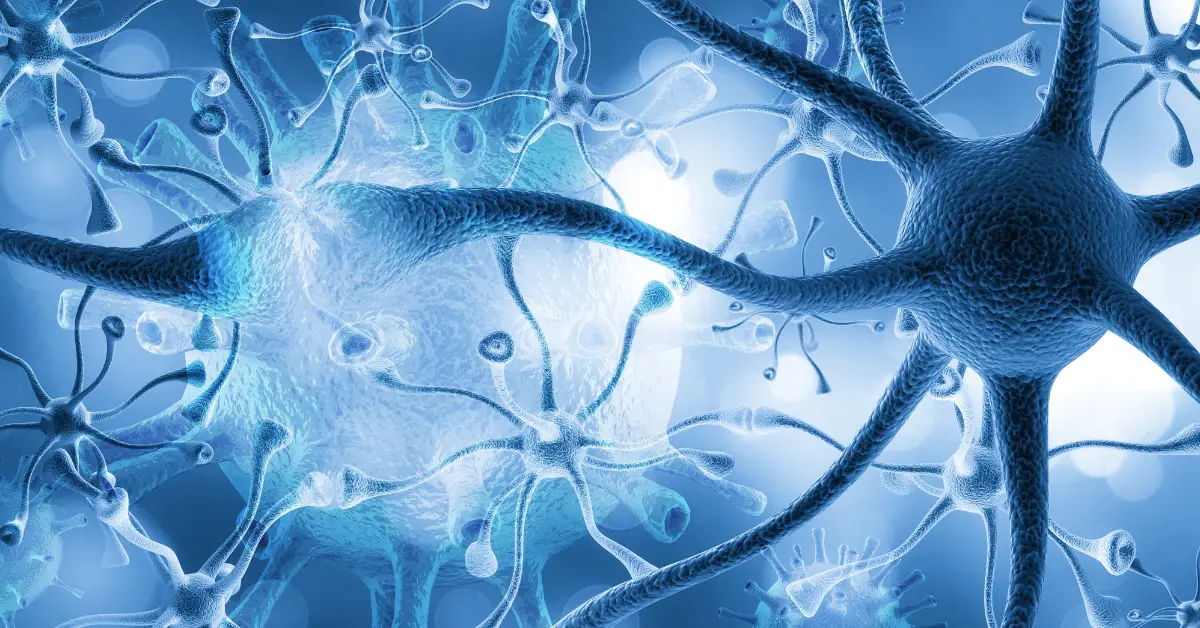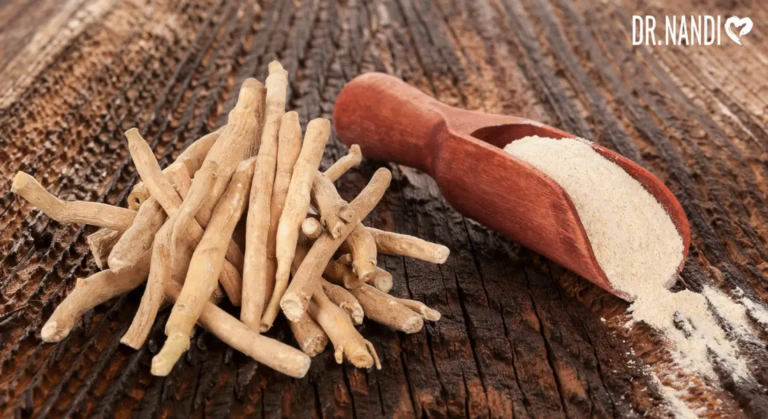Alzheimer’s disease, the most common type of dementia, slowly destroys memory, behavior, and the capacity to think clearly. Eventually, sufferers lose the ability to carry out the simplest tasks due to brain shrinkage (atrophy) and cell death. (1)
Worldwide, over 55 million people are believed to suffer from Alzheimer’s disease (2), while in the United States, an estimated 5.8 million people live with the brain disorder. (3)
Sadly, there is no cure, and Alzheimer’s disease is the sixth leading cause of death in the USA, accounting for almost 4% of overall deaths. (4)
For weekly updates, including the latest news relating to Alzheimer’s disease, sign up for our free Newsletter from Dr. Partha Nandi.
What Causes Alzheimer’s Disease?
Although the root cause of Alzheimer’s disease is not fully understood, many scientists and researchers follow the idea that a build-up of proteins in and around brain cells is chiefly responsible.
One of those proteins is called beta-amyloid, which forms plaques around brain cells, while another protein called tau builds up inside brain neurons. When these proteins accumulate, they may impair cognitive function. (5)
Several risk factors may lead to the onset of Alzheimer’s and other dementia-related diseases:
Age
Although age is not a direct cause of Alzheimer’s disease, the risk increases as you grow older. Most people diagnosed with Alzheimer’s are over 65, and the risk doubles every five years after that age. The risk increases by one-third after the age of 85. (6)
Genetics
In some cases, genetics increase the risk of developing Alzheimer’s disease.
Family History
Having family members with Alzheimer’s may also increase your risk of developing the condition.
Head Injury
Some studies suggest that brain or head injuries may lead to dementia-related conditions. (7)
Heart Health
The risk for Alzheimer’s or vascular dementia may be higher if a person suffers from poor heart health, including heart disease, diabetes, stroke, high blood pressure, and high cholesterol. (8)
Smoking
Toxins in cigarette smoke can cause inflammation and stress to cells in the body, both connected to Alzheimer’s disease. Smoking increases the risk of cardiovascular disease, also closely related to dementia.
The World Health Organization (WHO) states smokers are 14% more likely to develop Alzheimer’s disease than non-smokers. (9, 10)
Poor Dietary Choices
New studies suggest that people who carry the ApoE4 gene and consume a diet high in cholesterol, fat, and sugar may be at a greater risk of developing Alzheimer’s. (11)
Declining Acidity Levels in Lysosomes Can Cause Neuronal Damage Associated With Alzheimer’s
Research into the causes of dementia and Alzheimer’s disease has often focused on the build-up of proteins and plaques in and around brain cells. However, new studies have shown that declining acidity levels in lysosomes can lead to neurological damage associated with the brain shrinking condition.
What Are Lysosomes?
A lysosome is an acidic type of membrane-bound cell organelle that contains digestive enzymes. Membrane-bound organelles are cellular structures bound by a biological membrane, which may be a single or double layer of lipids and typically with scattered or interspersed proteins. (12)
Lysosomes have various cell functions, such as breaking down excess or worn-out cell parts. They can destroy invading viruses and bacteria and help damaged or dying cells to self-destruct in a process called programmed cell death or apoptosis. The acidic enzymes in lysosomes break down, remove and recycle waste products such as excess plaque. (13)
Some research has discovered that a dropping in acidity levels may be a hidden culprit responsible for the onset of Alzheimer’s disease. (14)
While a slow build-up of beta-amyloid and tau proteins can cause plaques to manifest in and around brain cells, dysfunctional lysosomes may enhance that process, leading to neuronal damage.
As a result, experimental therapy used to remove amyloid plaques has been largely unsuccessful in trying to halt the progression of the disease. Scientists are now working to develop treatments that target lysosome dysfunction and restore acidity levels.
Boosting Lysosome Function
While more research is required, it may be possible to boost lysosome function through exercise or intermittent fasting. (15)
Early animal studies have shown some promise, and fasting may delay the onset of vascular dementia and Alzheimer’s disease and reduce brain inflammation. (16)
Reducing the Risk of Alzheimer’s Disease
Alzheimer’s disease is a slowly progressing disease that often develops long before symptoms show. While you cannot reduce certain risk factors such as family history, genetics, or age, incorporating lifestyle changes may decrease the early onset of the condition.

Here are a few things you can add to your daily life to help lower the risk.
- Physical activity: Studies have shown that regular physical activity can reduce the risk of developing Alzheimer’s disease by up to 45% and other types of dementia by up to 30%. (17)
- Healthy diet: Adopting a healthy balanced diet such as the Mediterranean or the MIND diet can positively impact health, including in the fight against dementia-type diseases. (18)
- Stop smoking: Smoking increases the risk of dementia and vascular problems, such as stroke or brain hemorrhaging. Toxins in cigarette smoke, including second-hand smoke, cause inflammation and stress to cells. The risk of developing Alzheimer’s disease increases further in heavy smokers. (19)
- Reduce alcohol intake: Excessive or long-term alcohol intake may increase the likelihood of developing all types of dementia. (20)
- Remain mentally active: Studies have shown that people aged 75 and over have a lower risk of dementia if they remain mentally active by reading, playing board games, or doing puzzles such as crosswords or sudoku. (21)
- Good social life: Maintaining a good social life can help in the fight against Alzheimer’s disease and other types of dementia. Close social ties with family and friends and participating in leisure activities can boost cognitive function. (22)
Sign Up for Our Newsletter
Remaining fit and healthy by improving your lifestyle is one of the best self-care practices you can make. In doing so, your mental and physical health will reap the benefits and help promote longevity and wellness as you grow older.
For free weekly advice, sign-up for our newsletter and receive it straight to your mailbox.
Sources:
- https://www.nia.nih.gov/health/what-alzheimers-disease
- https://www.who.int/news-room/fact-sheets/detail/dementia
- https://www.cdc.gov/aging/publications/features/Alz-Greater-Risk.html
- https://www.cdc.gov/aging/publications/features/alzheimers-disease-deaths.html
- https://www.nia.nih.gov/health/what-happens-brain-alzheimers-disease
- https://www.alz.org/alzheimers-dementia/what-is-alzheimers/causes-and-risk-factors
- https://www.alzheimers.org.uk/about-dementia/risk-factors-and-prevention/head-injury-sport-dementia
- https://academic.oup.com/abbs/article/52/1/1/5644391
- https://www.ncbi.nlm.nih.gov/pmc/articles/PMC4098701/
- https://apps.who.int/iris/bitstream/handle/10665/128041/WHO_NMH_PND_CIC_TKS_14.1_eng.pdf
- https://news.usc.edu/122919/poor-diet-plus-alzheimers-gene-may-fuel-the-disease/
- https://www.ncbi.nlm.nih.gov/books/NBK9953/
- https://www.biologyonline.com/dictionary/organelle
- https://www.pnas.org/doi/abs/10.1073/pnas.1510329112
- https://www.ncbi.nlm.nih.gov/pmc/articles/PMC6423516/
- https://www.ncbi.nlm.nih.gov/pmc/articles/PMC7379085/
- https://www.alzheimers.org.uk/about-dementia/risk-factors-and-prevention/physical-exercise
- https://www.nia.nih.gov/health/what-do-we-know-about-diet-and-prevention-alzheimers-disease
- https://www.alzheimersresearchuk.org/blog/all-you-need-to-know-about-smoking-and-dementia/
- https://www.ncbi.nlm.nih.gov/pmc/articles/PMC6320619/
- https://www.ncbi.nlm.nih.gov/pmc/articles/PMC1151037/
- https://www.ncbi.nlm.nih.gov/pmc/articles/PMC3038528/











 Subscribe to Ask Dr. Nandi YouTube Channel
Subscribe to Ask Dr. Nandi YouTube Channel









